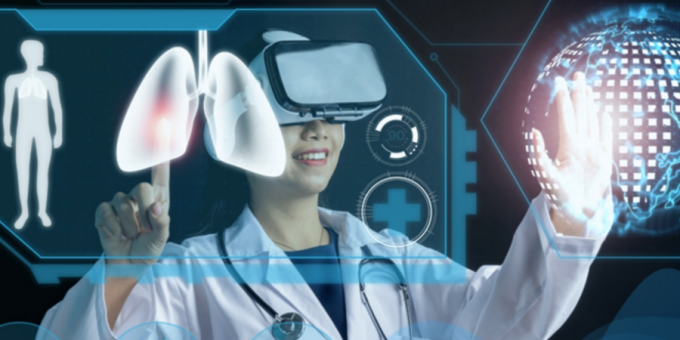
The Impact and Future Potential of AI and Machine Learning in Healthcare
The integration of AI and machine learning into healthcare practices is already transforming the landscape of clinical and administrative processes, with the potential to revolutionize the way care is delivered. According to Dr. Ray Smythe, Chief Medical Officer of Strategy and Partnerships at Philips, the current advancements are just the beginning of what these technologies can achieve.
The prospect of more affordable, efficient, and convenient healthcare is emerging with the increasing use of AI in the healthcare sector. Dr. Smythe, who possesses expertise in medicine, technology, and business, anticipates significant developments in the next 25 years, envisioning accomplishments that were once considered dreams spanning centuries.
Present Uses:
While the applications of AI in healthcare continue to expand, many of the current uses may not be deemed “super sexy,” according to Dr. Smyth. One prevalent application involves predicting the maintenance needs of medical equipment, contributing to cost savings and ensuring uninterrupted clinical operations.
AI and machine learning are also making strides in clinical applications, particularly in medical imaging. These technologies enhance the efficiency of scanning for abnormalities in CT scans, providing quicker and more accessible diagnostic insights.
For patients requiring multiple CT scans over time, machine learning platforms can learn and predict clinicians’ preferences, automatically measuring and locating abnormalities for comparison with past images. Monitoring systems utilizing machine learning can predict conditions like sepsis, enabling timely medical intervention.
Startups Making Waves:
Startups like Clew, established in 2015, are partnering with major medical centers such as the Mayo Clinic and the Tel Aviv Sourasky Medical Center. Clew’s predictive clinical analytics system, integrated with existing hardware and electronic health records, utilizes machine learning to analyze monitoring device output and other data, offering a platform for predicting clinical and administrative trends.
The Future Landscape: Dr. Smythe anticipates that the future of AI in healthcare will involve more sophisticated clinical decision support systems. These systems could not only predict potential health issues and diseases but also recommend appropriate steps for patients and guide medical staff on effective treatment plans.
The democratization of healthcare is also on the horizon, with AI making care more accessible and affordable. As these technologies advance, responsibilities may shift to lower levels of the healthcare hierarchy, eventually reaching patients themselves. Intelligent agents could guide patients through self-conducted exams for a significant portion of their health concerns.
Dr. Smythe acknowledges that realizing these future benefits will require navigating financial cost realignment and changing business models in the healthcare system. With limited budgets and slim margins, healthcare systems may need to adapt their business models, potentially embracing shared risk models between providers and vendors.
While the transition period may feel clunky and present challenges, Dr. Smythe remains optimistic about the positive impact AI and machine learning can have on the future of healthcare.
